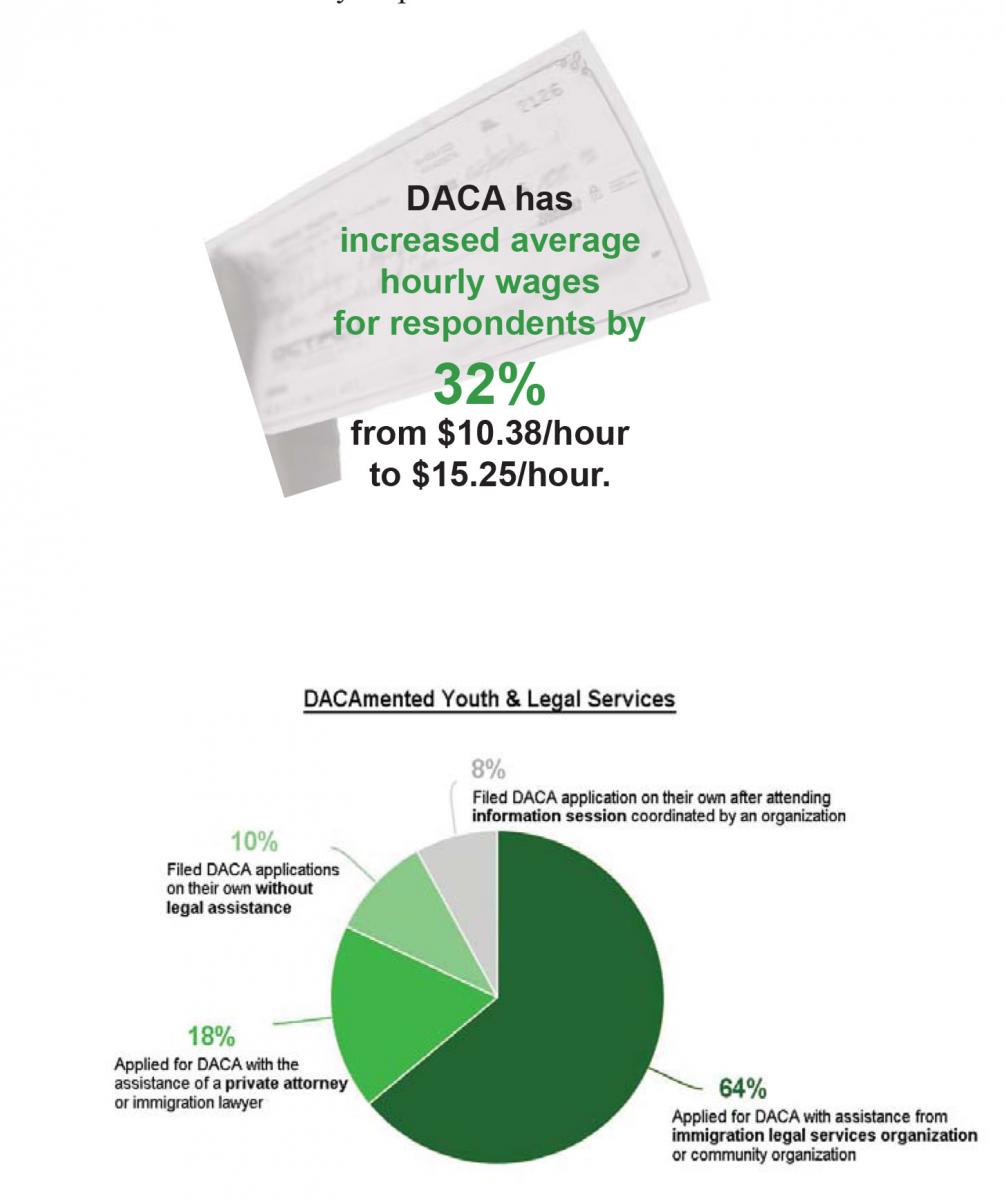(August 2015) — Since the Deferred Action for Childhood Arrivals (DACA) program launched in August 2012, thousands of Illinois residents have become more financially independent, gained access to educational and professional opportunities, and contributed more to their communities. While DACA does not grant recipients permanent lawful status, it does provide individuals who were brought to the United States at a young age temporary relief from the fear of deportation, access to work authorization, and a social security number for a renewable two-year period.
A survey of 200 DACA recipients in the Chicago area by the National Immigrant Justice Center (NIJC), with the assistance of Assistant Professor Tom K. Wong at the University of California, San Diego, demonstrates that providing legal status to undocumented immigrants has wide-ranging, positive impacts.
Despite the economic benefits of improving access to DACA services, Illinois has eliminated all funding for immigrant services for fiscal year 2016. These cuts make it particularly difficult for individuals to apply for
or renew their DACA status without the assistance of free legal clinics.
This policy brief demonstrates there are many national and statewide benefits to be gained from broadening relief for undocumented individuals, either through executive action or commonsense immigration reform.
Read the policy brief (PDF)


